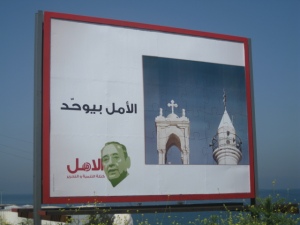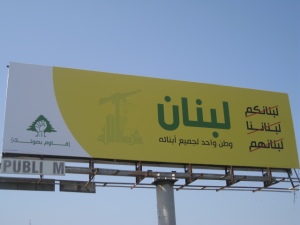From Human All too Human, “A Glance at the State”
Paragraph 472:
But what if a quite different conception of government such as is taught in democratic states begins to prevail? If it is regarded as nothing but the instrument of the popular will, not as an Above in relation to a Below but merely as a function of the sole sovereign power, the people? Here the attitude towards religion adopted by the government can only be the same as that adopted towards it by the people; every dissemination of enlightenment must find its echo in their representatives, and an employment and ex- ploitation of the religious drives and consolations for political ends will no longer be so easy (unless it happens that powerful party leaders for a time exercise an influence similar to that of enlightened despotism). But if the state is no longer free to profit from religion itself or the people come to hold far too diverse opinions on religious matters for the government to be permitted any single unified policy regarding religious measures – then the way out will necessarily be to treat religion as a private affair and to hand it over to the conscience and customs of every individual. The first consequence of this will be an apparent strengthening of religious feeling, inasmuch as suppressed and concealed manifestations of it to which the state involuntarily or deliberately gave no breathing space now break forth and proceed to excesses and extremes; later religion will be overrun with sects, and it will become plain that at the moment religion was made a private affair an abundance of dragon’s teeth were sown. The sight of this conflict, the malignant exposure of all the weaknesses of the religious confessions, will finally admit of no other way out than that every better and better gifted man will make irreligion his private affair: which disposition will then come to dominate the minds of those in government and, almost against their will, give to the measures they take a character hostile to religion. As soon as this happens the mood of those still moved by religion, who formerly adored the state as something half or wholly sacred, will be transformed into one decidedly hostile to the state; they will lie in wait for the measures taken by the government, seek to obstruct, to cross, to disrupt as much as they can, and through the heat of their opposition drive the counter-party into an almost fanatical enthusiasm/or the state; in which development they are secretly aided by the fact that, since their sundering from religion, hearts in these circles have felt a sense of emptiness which they are seeking provisionally to fill with a kind of substitute in the form of devotion to the state. After these transitional struggles, which may well last a long time, it will at length be decided whether the religious parties are still strong enough to revive the past and turn back the wheel: in which case the state will unavoidably fall into the hands of enlightened despotism (perhaps less enlightened and more troubled by fear than formerly) – or whether the anti-religious parties will prevail and, perhaps through schooling and education, in the course of generations undermine the propagation of their opponents and finally render it impossible. Then, however, they too will experience a slackening of their enthusiasm for the state: it will grow ever clearer that, together with that religious adoration to which the state is a sacred mystery, a supraterrestrial institution, the attitude of veneration and piety towards it has also been undermined. Henceforth the individual will see only that side of it that promises to be useful or threatens to be harmful to him, and will bend all his efforts to acquiring influence upon it. But this competition will soon become too great, men and parties alternate too quickly, hurl one another too fiercely down from the hill after barely having attained the top. None of the measures effected by a government will be guaranteed continuity; everyone will draw back from undertakings that require quiet tending for decades or centuries if their fruits are to mature. No one will feel towards a law any greater obligation than that of bowing for the moment to the force which backs up the law: one will then at once set to work to subvert it with a new force, the creation of a new majority. Finally – one can say this with certainty – distrust of all government, insight into the uselessness and destructiveness of these short-winded struggles will impel men to a quite novel resolve: the resolve to do away with the concept of the state, to the abolition of the distinction between private and public. Private companies will step by step absorb the business of the state: even the most resistant remainder of what was formerly the work of government (for example its activities designed to protect the private person from the private person) will in the long run be taken care of by private contractors. Disregard for and the decline and death of the state, the liberation of the private person (I take care not to say: of the individual), is the consequence of the democratic conception of the state; it is in this that its mission lies. When it has performed its task – which like everything human bears much rationality and irrationality in its womb – when every relapse into the old sickness has been overcome, a new page will be turned in the storybook of humanity in which there will be many strange tales to read and perhaps some of them good ones. – To repeat in brief what has just been said: the interests of tutelary government and the interests of religion go hand in hand together, so that when the latter begins to die out the foundations of the state too are undermined. The belief in a divine order in the realm of politics, in a sacred mystery in the existence of the state, is of religious origin: if religion disappears the state will unavoidably lose its ancient Isis veil and cease to excite reverence. Viewed from close to, the sovereignty of the people serves then to banish the last remnant of magic and superstition from this realm of feeling; modern democracy is the historical form of the decay of the state. – The prospect presented by this certain decay is, however, not in every respect an unhappy one: the prudence and self-interest of men are of all their qualities the best developed; if the state is no longer equal to the demands of these forces then the last thing that will ensue is chaos: an invention more suited to their purpose than the state was will gain victory over the state. How many an organizing power has mankind not seen die out: for example that of the racial clan, which was for millennia far mightier than that of the family and indeed ruled and regulated long before the family existed. We ourselves have seen the idea of familial rights and power which once ruled as far as the Roman world extended grow ever paler and more impotent. Thus a later generation will see the state too shrink to insignificance in various parts of the earth – a notion many people of the present can hardly contemplate without fear and revulsion. To work for the dissemination and realization of this notion is another thing, to be sure: one has to have a very presumptuous idea of one’s own intelligence and scarcely half an understanding of history to set one’s hand to the plough already – while no one can yet show what seed is afterwards to be scattered on the riven soil. Let us therefore put our trust in ‘the prudence and self-interest of men’ to preserve the existence of the state for some time yet and to repulse the destructive experiments of the precipitate and the over-zealous!


